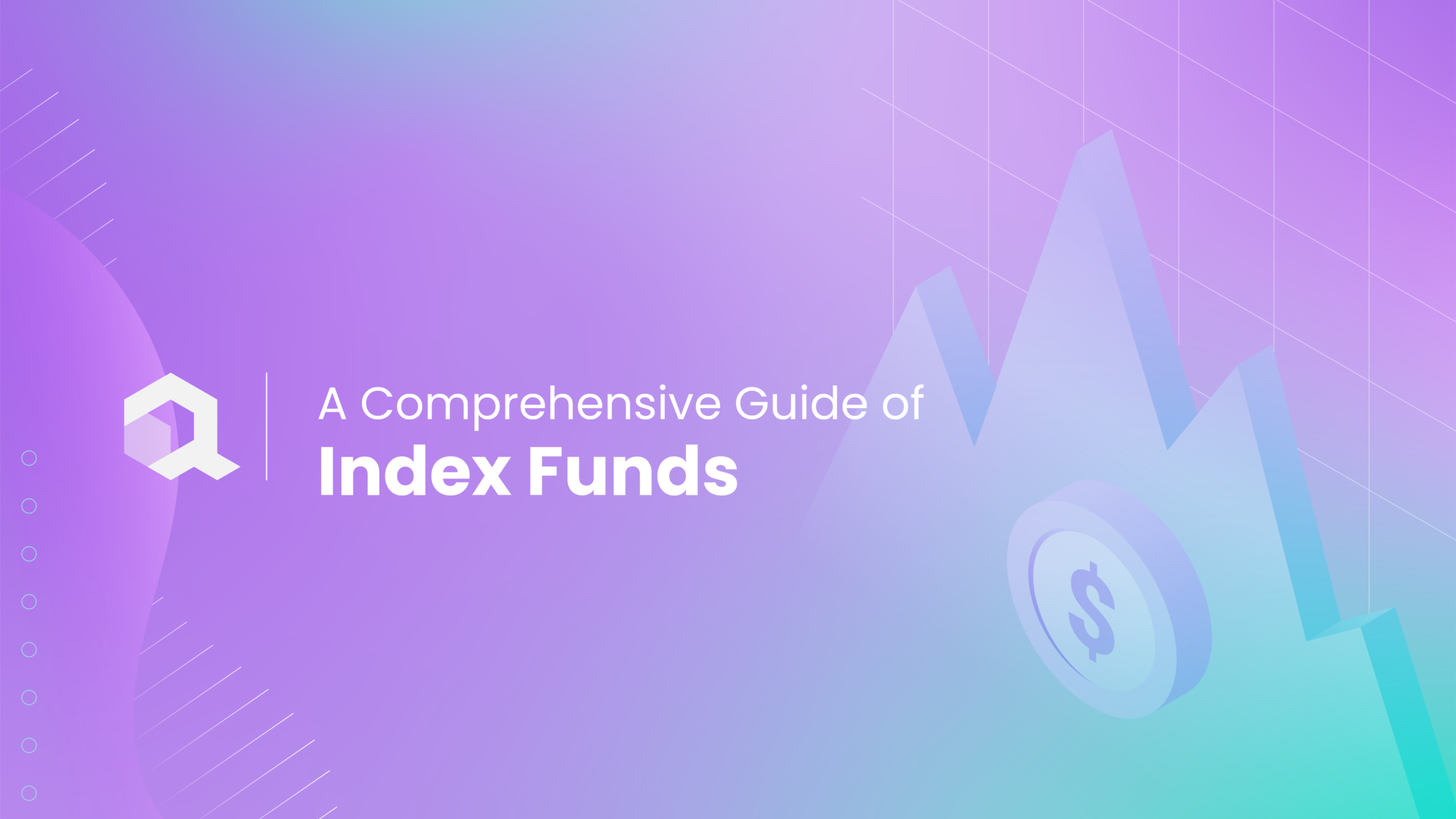
Many people like index funds because they’re easy to use and don’t cost much. The good things about index funds are many. People who like the simple way of doing things are attracted to them. This is because they copy how markets work instead of trying to beat it, which works well for some people.
Index funds are famous for being cheap. They have lower fees than actively-run investment plans. This is cheap, and it matches what investors want. They like to increase their money without spending too much, which is important if they aim for growing wealth over a long period of time. In this story, we’ll look closely at what index funds are about. We will explain how they help and why a few downsides might happen too, then talk in detail to investors looking for ways to add them to their group of investments.
What is an Index Fund?

An index fund is a special type of mutual or exchange-traded fund (ETF) that has become very popular in the world of investment. Its main idea comes from being a carefree way to invest money. It tries to copy how well markets like the popular S&P 500 or FTSE 100 do over time. Unlike funds that are managed actively and often have constant buying and selling of assets to try beating the market, index funds use a less involved method. Instead, they put money in a mix of financial things that look like the parts of an index. This plan gives investors a big view of the market. They own pieces of almost all companies or sections in that business area.
One big plus of index funds is their dedication to spreading things out. By keeping a mix of assets within an index, they distribute risk over many different securities. This lowers the impact bad-performing single items have on all holdings combined. By spreading money around, this helps manage risks better. It also matches with long-lasting investment plans, which makes index funds good for people who want safe and steady returns over time.
Also Read: Market Maker Options: Definition and How They Make Money
Index funds are famous for being cheap to run. The way they handle things requires fewer choices and trading. This makes them pay lower fees when compared to funds with active management. Investors who care about keeping costs low to get the best return on their investments like this cost-effectiveness. One important thing about index funds is being open and clear. Usually, people can easily find out what makes up the main index that is being used. This openness helps investors recognise exactly what stocks are in the fund. It makes them fully understand their investment and builds trust between them all.
Even though index funds have many good points, it’s very important to remember possible bad things. When the market drops or if an index doesn’t do well for a long time, it can change how much money you get from your fund. People who are looking for ways to use their money that involve active management and try to do better than the market might not like index funds because they just sit still. In the end, people invest in low-cost funds that let them be part of big markets with different companies. They believe for a long time and try to reduce risk by putting their money into many areas at once.
6 Advantages of Index Funds

Index funds offer several advantages that make them an appealing investment choice for many investors:
1. Cost Efficiency
Index funds are cost-effective because they use a simple way of investing with little management and trading. Unlike active funds that need a group to make choices and do deals, index funds just want to match how a chosen list goes.
This “let’s not get involved” approach greatly lowers the costs tied to research, studying and often buying. So, index funds usually have lower cost ratios than their actively managed siblings. Investors get help from this low-cost thing, as they don’t pay much in fees. This lets them keep more of what their investment grows over time. This benefit really appeals to investors who want cost-effective and long-term wealth building.
2. Diversification
Diversifying is a basic rule for managing investment risk. Index funds are very good at helping people put their money into many different areas, which lowers the chance of losing it all in one spot. These funds put their money into a wide variety of things that copy the mix, in particular an index. It could be stocks, bonds or other types of assets.
The different types of things in the portfolio help share risk better, lessening how much bad-performing single parts affect the total money invested. This risk prevention is very important in uncertain markets or bad times with money, especially when one area might be balanced by another doing well.
3. Market Exposure
Index funds give people a simple and easy way to join in on different markets or areas. These funds, when they follow a chosen price list, basically copy what the market is doing.
Copying what the market does lets people get involved in how that part of money rises and falls. This is very helpful for people who think a certain area or market will do well over time but might not have enough time, skills and tools to study deeply or manage their own stocks.
4. Transparency
Openness is a main feature of index funds, helping investors make smart choices and build confidence. The list of securities in the fund’s index is usually shown and can be found by anyone. This openness helps investors know exactly what they own, making the connection between managers and owners clear.
Having information about what makes up the index is also helpful. It helps people compare and study, giving them the power to choose wisely based on their financial goals or fear of risky investments. Openness is very important in the money business, where trust is key. People who put their money into investments feel better and safer when they know what they own. Also, those assets match the plan for how to invest wisely.
5. Consistent Performance
Getting good results all the time is a big benefit of index funds, especially for those who want to keep their money safe over the years. These funds may not beat the market, but they usually also avoid major losses.
When we pay close attention to how a certain index performs, investments called index funds catch the movements of the whole market. This helps them get returns that match what’s going on in most markets overall. This steady performance can be calming for investors who value steadiness and a slow buildup of wealth over time.
6. Simplicity
The ease of index funds makes them a big draw for investors who want an easy and simple way to invest. These funds work by copying a certain index. This way, there’s no need for complicated plans or constant watching to make active choices. This easy way is helpful for beginner investors who might not know much about money and also experienced ones who want to be more hands-off.
The simple way to get and put money in index funds is shown by their form. Investors can put money into a range of things with just one purchase. This makes it simpler to deal with managing many individual items themselves. This is simple and fits with the bigger idea of making money markets easier for more people. It helps everyone take part in investments together without limits or barriers.
Drawbacks of Index Funds

Though index funds have their benefits, they also come with some negative points. It’s essential for investors to consider these aspects before incorporating index funds into their investment strategy:
– Limited Upside Potential
A big negative of index funds is that they have a limit on how much profit you can make because they are passive by nature. Index funds give you security and steady returns by copying a particular index. But they naturally can’t beat the market because active management or picking good stocks isn’t something done in those types of investments. When some stocks in an index grow a lot, people who invest in index funds might not gain all they can. This trait might worry people who want to make more money or do better than the whole market. This is because index funds are made so that they match, not beat, how well their chosen guideline does.
In situations where there are significant changes or big swings in the market, it’s more clear that the potential gains will be limited. Active money managers may be able to react quickly, profit from new opportunities, or change how they allocate their resources easily. On the other hand, index funds are set by their basic stock list. This stops them from profiting from market mistakes or changing along with economic updates.
– No Risk Mitigation for Overvalued Stocks
A problem with index funds is that they can’t pick and choose not to invest in overpriced stocks within the group of shares that they follow. In the old way of managing money, fund managers could study and make choices about individual stocks based on what they believed was a good price. But index funds put their money into all the stocks on a chosen list of securities without considering how much each one is worth. When people can’t tell good stocks from bad ones, they are at risk for loss. They might lose money if stock prices fall or the true value of certain stocks is found out.
Also Read: Market Making: Strategies and Techniques
This problem is very important when some parts of an index get much more valuable, maybe causing a big price bubble in the market. People who put money in index funds would be open to these high prices, but they can’t reduce risk by not buying certain stocks. The inability to use special ways of investing based on important analysis is a disadvantage for the easy and cheap aspects linked with index funds.
– Market Downturn Exposure
Even though they talk about spreading investments, index funds are not safe from drops in the market. Index funds doing well depend directly on the total market or index they copy. When the big market goes down, index funds will show those bad changes. Even though spreading your money around helps reduce danger, it doesn’t get rid of the risk that comes from overall market situations.
When there are bad times in the stock market or economy, people who invest in index funds might see a drop in how much their investments are worth. For some investors who like low-risk strategies or want to keep their money safe in rough markets, being exposed too much can be a worry. It shows how important it is to know that while index funds help spread risks, they do not fully protect against market ups and downs.
Incorporating Index Funds into Your Portfolio
Index funds have many good points, but they also come with downsides. It’s essential for investors to consider these aspects before incorporating index funds into their investment strategy:
– Diversification
When you add index funds to your investment group, spreading out different kinds of investments becomes very important. Spreading money on different types of assets to lower the bad performance effects of one asset is what diversification means. By design, index funds cover a wide range of securities on a specific list. They include different industries and areas too. This natural spreading out can be a strong way to handle risk, making your stock collection better. It’s less likely to change very much because of the instability in single stocks. When you check your money investments, think about adding index funds to different types of assets. This can help make a good spread out plan that matches the idea of not putting all our things together in one place.
Moreover, spreading out goes beyond different types of assets to locations and parts in the market. Using index funds that follow global markets or certain areas can make your money mix even more helpful. Looking at what different funds do and comparing them to what we have now helps make our investments better. It makes sure they are well spread out and not too risky.
– Risk Management
Index funds are a simple way to buy lots of stocks at once, which makes it easier for you to not worry about picking the perfect time or choosing an individual company’s stock. For people who want to manage risk, the safety and easy-to-guess nature of index funds can be helpful. These funds give you access to the overall market by following a particular index.
They share risk across many different items, making sure not all money is in one place only. When you use index funds, be sure to check how much risk you can handle and what goals you have for your money. If you want to handle risk even when you’re part of the market’s growth, putting some money into index funds can go along with this plan. The way index funds work also makes it less likely that behavioral biases can affect their choices about what to invest in. This helps with managing risk better by making decisions more carefully and systematically.
– Cost Efficiency
The money saving power of index funds is a strong reason to think about using them in your set of investments. Index funds usually have lower expense ratios than actively managed money pots. This cost benefit comes from their quiet nature, which requires less active control and trading. Look at your current investments carefully and check how much they all cost. Introducing index funds can help make things cheaper. This lets you keep more of your money back in the long run.
Think about how fees affect the performance of your investments and how reducing costs can lead to higher net returns. Lower costs are a good thing, but we need to think about other things like variety in investments and managing risk. We also should make sure our goals for the long-term match up well with these lower fees. Getting the correct mix means that using index funds helps make your overall investment plan cheaper and more efficient.
Conclusion
Index funds give people an easy and cost-effective way to join the big world of money markets. These money tools follow a chosen market index without any action of their own. They are easy to use and loved by both newbies and people who have been investing for a long time. Index funds are liked because they let people get a wide mix of stocks without the problems related to hands-on management. Index funds let investors get involved in a wide range of assets from different industries and fields by copying the mix found in an index like the S&P 500 or the FTSE 100. This helps them be part of lots of stuff at once.
Remember that while index funds are a good choice for some, they might not match the plans of every person. Different ideas about investing, how much risk they can handle, and their goals for money make each person’s profile as an investor unique. So, we need to understand the good and not-so-great parts of index funds. This is very important for making smart choices when putting together a balanced group of investments that are also spread out in different ways.
Disclaimer: The information provided by Quant Matter in this article is intended for general informational purposes and does not reflect the company’s opinion. It is not intended as investment advice or a recommendation. Readers are strongly advised to conduct their own thorough research and consult with a qualified financial advisor before making any financial decisions.

I craft stories that make complex ideas clear. I simplify the blend of data science, machine learning, and crypto trading, showcasing how advanced tech and quantitative models analyze data for informed trading choices. Join me in exploring the realm of quantitative trading, where my narratives make intricate concepts easy to grasp.
- Alifia Berizkyhttps://quantmatter.com/author/alifia-berizky/
- Alifia Berizkyhttps://quantmatter.com/author/alifia-berizky/
- Alifia Berizkyhttps://quantmatter.com/author/alifia-berizky/
- Alifia Berizkyhttps://quantmatter.com/author/alifia-berizky/
